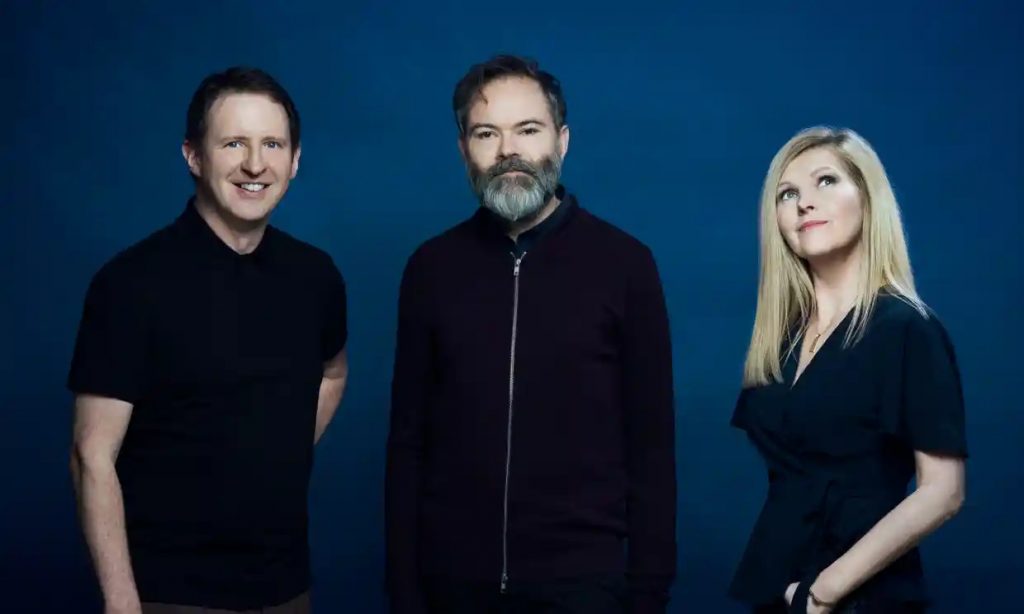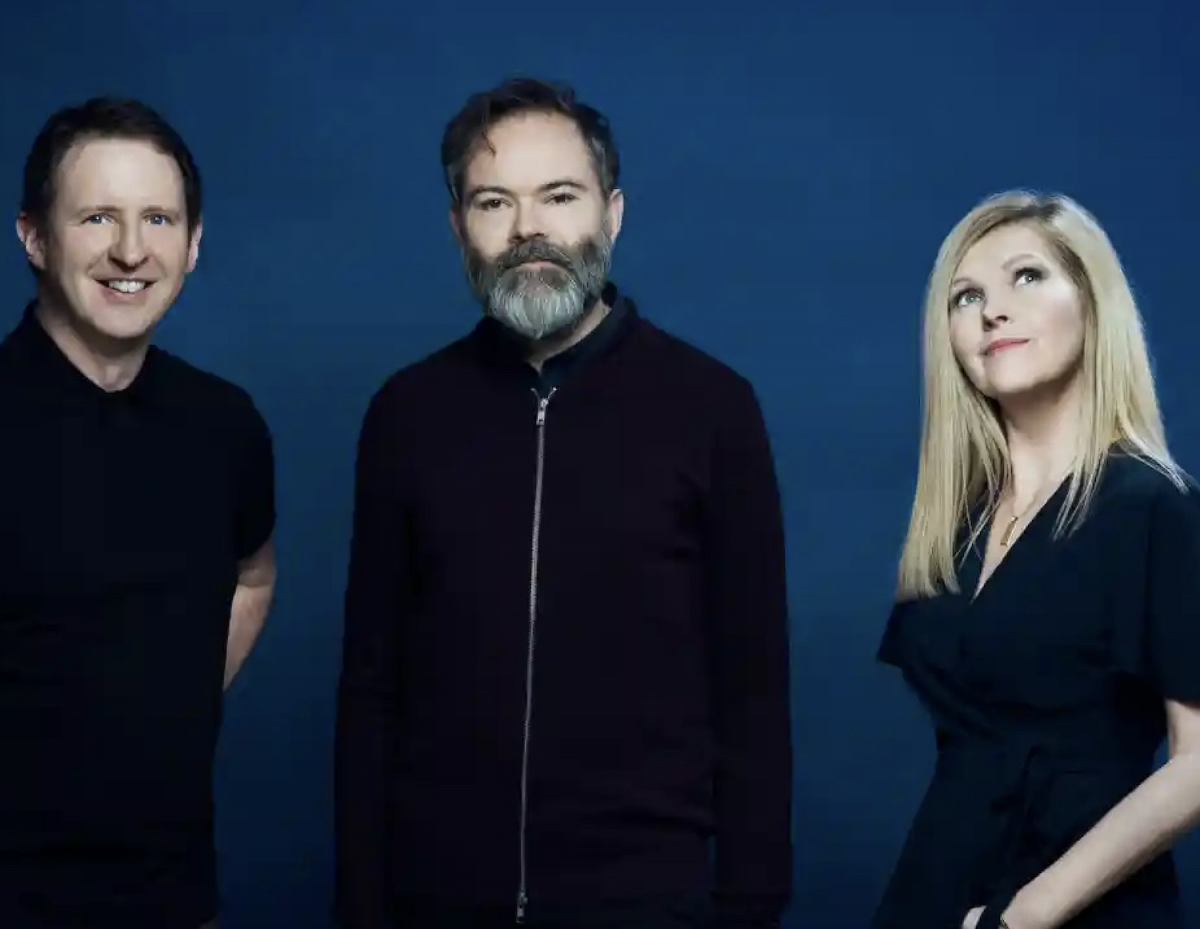
Saint Etienne returns with a love/hate letter to its childhood home
“Home Counties—a comfortable plasticized commuterland with respectable villas and neatly mown lawns interspersed with patches of mild scenery.”
—Laurence Urdang, Names & Nicknames Of Places & Things
England’s Home Counties have always presented themselves as a distinctly unlovely proposition. Composed of the commuter-belt counties surrounding London, they’ve long been a byword for cultural sterility, a land of tall privet hedges, twitching lace curtains, unquestioning conformity, Daily Mail devotees and weekend golfers who still worship at the shrine of Margaret Thatcher.
They are the spiritual home of the Little Englander, and yet, behind the bland, beige facade lurk legions of young misfits, bedroom fantasists with their faces pressed eagerly against London’s windows, dreaming of escape. There’s a long, noble lineage here including the likes of Bowie, Jagger and Richards, Siouxsie Sioux and the Bromley Contingent, Blur and perennial pop purists Saint Etienne. Five years on from 2012’s Words And Music By Saint Etienne, they’re back with a new album titled, suitably enough, Home Counties (Heavenly), and as the band’s Bob Stanley explains, he still has distinctly mixed emotions about both the area and the mindset.
“It’s where we all grew up,” he says from his home in London. “It’s not London but surrounds it. This album is not about Brexit as such, but the home counties all voted Leave, whereas London, for the most part, was pretty much in the Remain camp. The home counties made their voices loud and clear, which was a bit grisly, really, so this album’s very much about a love/hate relationship with the place you grew up in. It can be a very suffocating place. It’s somewhere you want to get away from when you’re a teenager. That said, the countryside around there is lovely, but it’s the sheer oppressiveness of the commuter belt that makes it sneered at and incredibly uncool. It definitely gives you something to kick against. I mean, you can be adventurous if you live there, but really, if you’re vaguely creative, most people escape to London as soon as they can.”
Which is exactly what all three members of Saint Etienne—Stanley, Pete Wiggs and Sarah Cracknell—did in their early 20s. They were, and remain, very much suburban romanticists.
“We all moved to London around the same time, just before the group formed,” says Stanley. “A lot of our early stuff is informed by that excitement, writing about our new surroundings as opposed to sitting in a bedroom in Croydon gazing at a London A-Z.”
While not exactly a concept album—Stanley claims its origins lie in a book on the subject he picked up in a secondhand shop and the “wistful, slightly reflective” feel of tracks that Cracknell had demoed in early recording sessions—Home Counties comes across as a culmination of sorts. It’s everything that’s great about Saint Etienne—wry, literate, stylish, shamelessly romantic—and musically there’s a lot going on. Alongside the usual shiny, gleaming electro-pop flourishes are echoes of everything from Northern soul floor stompers and the retro-futurism of contemporaries Stereolab and Broadcast to the cinematic atmospherics of John Barry and Roy Budd and the yé-yé girls of ’60s French pop.
“That’s all stuff we’ve been listening to for years,” says Stanley. “It just seeps through without us even thinking about it.”
This attentiveness, surely, is key to the enduring appeal of Saint Etienne—they remain, at heart, diehard obsessives, musical trainspotters with a distinctly British affection for style and artifice and wit, possessed with an unabashed love of pop with a capital P.
“This idea of ‘real’ music or ‘authenticity’ is one that I find absolutely repellent, really,” says Stanley with a laugh. “The idea that, say, Dion’s ‘The Wanderer’ is less authentic or real than, say, a Bon Iver record is just silly. It’s just pop music. I mean, I’ve talked about this in my book (2014’s superlative Yeah! Yeah! Yeah! The Story Of Pop Music From Bill Haley To Beyoncé), but if you really are ‘authentic’ or ‘real,’ then you’re going to be singing a cappella in a pub. Because as soon as you make a record, you’re part of the music industry, and as far as I’m concerned, you’re not hugely different to Girls Aloud. You’re part of the industry whether you like it or not. You’re in the same game; otherwise, you wouldn’t be making records, right?”
—Neil Ferguson







